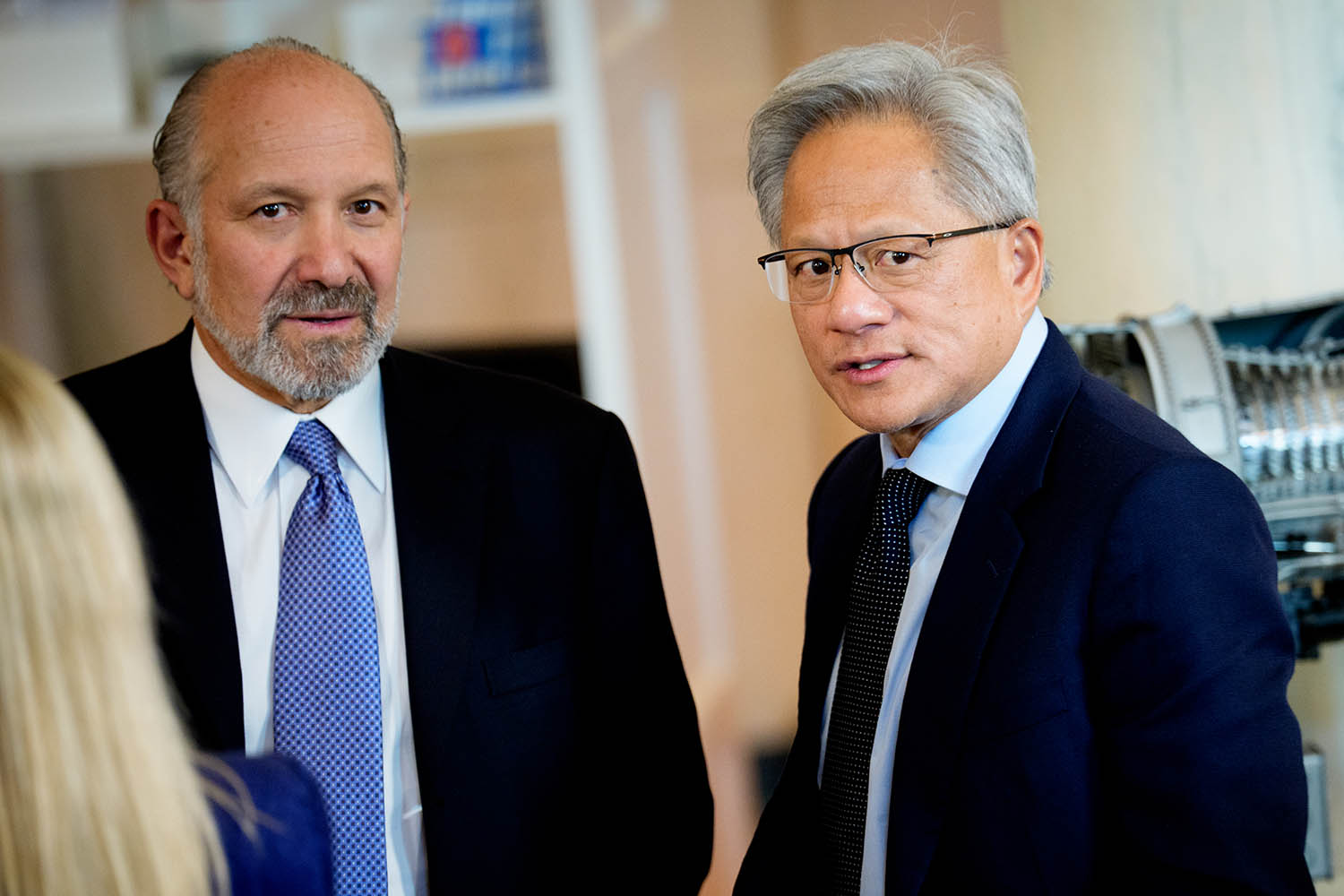Financial results reported last week by Nvidia contained the crucial detail that it is not forecast to sell any of its H20 chips to China in the third quarter of this year.
So what? Nvidia is the world’s most valuable company, but it’s not invulnerable. Last month Chinese officials were reported to have felt “insulted” by comments from Howard Lutnick, the US commerce secretary, who said in July that chip export controls meant “we don’t sell them our best stuff, not our second-best stuff, not even our third-best”. Beijing then acted to dissuade local companies from buying the H20. This
•
could cost Nvidia billions of dollars in revenue;
•
looks like it will stop China getting hold of a key chip used in AI; and
•
shows the complexities of trade and investment in a tech cold war that has roiled relations between Washington and Beijing.
Biggest fish. Nvidia is the only company in the world with a market cap that exceeds $4 trillion. Its shares slid by about 3 per cent in after-hours trading despite reporting record revenues and operating profits in the second quarter of this year, with a 56 per cent rise in sales.
The muted market reaction is partly a function of the China factor, which CEO Jensen Huang calls “geopolitical issues”.
Another factor is the outlook for the AI boom. More than two years after the launch of ChatGPT spurred an AI investment frenzy, Nvidia remains top of the tree in selling chips that enable generative models. Its gross profit margin in the second quarter was 72 per cent, a level of profitability that lies behind its high share price.
But there are questions about how long this profitability can continue. Companies such as Advanced Micro Devices, Qualcomm, Google and Amazon are seeking to fill niches in the AI chip market and offer alternatives to Nvidia.
Stuck in the mud. The company’s newest AI chip, the Blackwell, delivers a generational leap in processing and demand is high. But the company remains barred from selling it in China despite Huang’s attempts to persuade the US administration to change course.
Indeed there is a school of thought that the main reason that Beijing is dissuading Chinese firms from buying the H20 is because it wants Nvidia to work harder to get the Blackwell, or at least a modified version, approved for the China market.
What’s more… it could happen. Donald Trump last week opened the door to the possibility of more advanced Nvidia chips being sold in China. But there is strong resistance in the US toward helping Beijing in its rapid ascent up the technology ladder.
Newsletters
Choose the newsletters you want to receive
View more
For information about how The Observer protects your data, read our Privacy Policy


